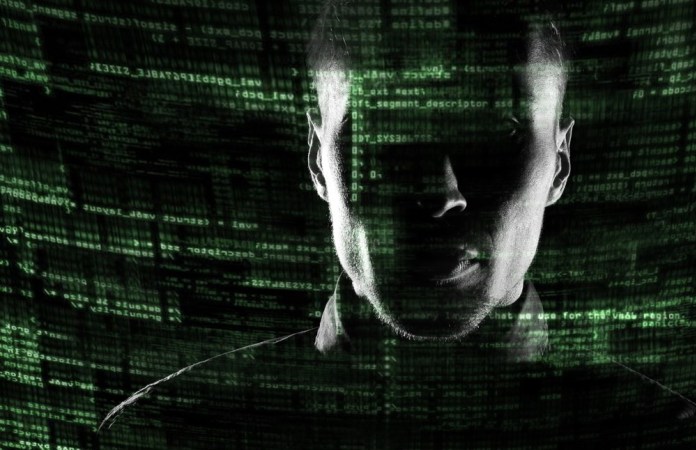My article in Data Driven Investor – link .
I’ve written about how quantum computers work. Now it’s time to talk about quantum networks. I believe research into the potential of the quantum internet is critical to future IT security. Will it provide absolute data security, thwarting data thieves? Today, the answer is unclear; nothing is 100 percent certain in the realm of quantum technology. Not now, anyway. But what is certain is that the possibility of quantum communication is whetting the appetites of militaries, governments, and industries for whom data protection is critical to survival.
Mastering all aspects of information except securing it
Today, neither the generation nor commercialization of information nor its adaptation to the needs of modern business presents any insuperable problems. We know how to produce information (in fact, we wrestle with overproduction) and how to turn it into increasingly more ingenious devices. Thanks in part to artificial intelligence (AI), we are getting better at searching, structuring and classifying information, enhancing the capabilities of scientists and medical professionals, among others. And yet, we can’t keep the information we generate, structure and communicate securely. Anyone who works with or depends on the internet is unsettled by the almost daily reports of personal data breaches in banks, public institutions, and social networks. Most people are growing increasingly uncomfortable about the manipulation of personally identifiable information by criminal entities or shadowy individuals and groups with mysterious agendas. In this environment, I believe that only those who learn how to fully secure information will be able to gain a significant advantage in business and politics.
The world is not unaware of the importance of information security. I have repeatedly pointed to the huge advantages of blockchain technology, which, more than any other, has brought us close to the ideal of IT security. Blockchain employs cryptography to support data exchanges and prevent any undesirable meddling. I am of the opinion that the quantum internet is at least equally, if not better capable of protecting our data. However, we need a few more years of experience (experts speak of at least a decade) to overcome the hurdles that today make the quantum internet a fledgling (albeit ambitious) project rather than a fortress unassailable by malicious algorithms.
Magically entangled
At the heart of the quantum internet lie transfers of all kinds of data using quantum signals. A key concept that enables quantum transmissions is “entanglement,” which, simply put, is a special relationship between two particles that are inextricably linked, their states assuming twin forms. If one of these particles is observed and measured in ways that affect its condition, the other will immediately “sense” the impact, even if it exists in another galaxy. The phenomenon, which is controversial from the viewpoint of classical physics, was confirmed through testing photons. This strange relationship between two discrete particles can one day be used to send information over great distances, absolutely safely.
We can be certain of the safety of the information transfer as it is based on the quantum distribution of a key that allows the communicating parties (both senders and receivers) to acquire a secret, randomly generated string of characters that enables the encryption and decryption of information exclusively by the individuals who share the key. Any external meddling with the message (such as observation or eavesdropping) by an unauthorized party will instantly set off an alarm. What is more, any attempt to illegally decode information will change the quantum state, triggering the immediate destruction of the message’s content. Consequently, spying or other unauthorized activities in the quantum network becomes impossible. In theory, the quantum internet is hack-proof while supporting networks the transfer information at the speed of light.

The promise…
For the time being, claims about absolute communication security rely primarily on the theoretical tenets of quantum physics. It remains to be tested and proven in actual practice. The reason for this is simple: No one has built a large quantum network. We are in a very early development stage. But as we set out on this exciting journey, we should step back to consider the hurdles that will have to be overcome.
…and the reality
Problem number one is that ground-based quantum transmissions over fiber-optic cable are now highly limited in range (from a few meters to a hundred kilometers). Not only is distance limited, but transmission durations are also short. In the majority of cases, quantum states can only be sustained for a few seconds at a time, after which they grow incoherent, i.e. they degrade. Experts are racking their brains over ways to develop quantum signal amplifiers that would make the transmissions stronger and more durable. It may be possible to solve this problem by using a semi-quantum system with transmissions taking place among trusted decoding and re-encoding nodes. Research is also focusing on developing a suitable material for the safe long-term storage of data in quantum memory beyond the few seconds achievable today.
This may not be as difficult as it sounds. There have been major breakthroughs in the struggle with the uncooperative quantum matter. Both transmission time and distance have been growing steadily. In 1998, the Austrian physicist Anton Zeilinger successfully increased the distance between entangled photons to a few hundred meters. By 2015, a team led by Stanford’s Ronald Hanson used quantum entanglement to send a message over a distance of 1.3 km. The transmission took fractions of a second and could be replicated hourly. The last three years have seen further advances, with major improvements in technical performance. Transmission distances can now reach up to 100 km with rates dozens of times those accomplished in 2015. It is now possible to send a message to a point 20 km away at 1Mbps.

This is not science fiction
The biggest breakthrough to date in the development of quantum technology has been made by researchers in China who sent a signal 1,200 km. No terrestrial fiber-optic line could achieve this feat so the Chinese-Austrian team experimented in space and employed lasers. Using the satellite Micius, the researchers successfully sent quantum particle pairs to several ground locations, achieving both greater distance and efficiency than fiber optic, and demonstrating the feasibility of satellite-based quantum communication. Needless to say, the experiment was complicated. One of the Chinese scientists compared the probability of a ground-based station intercepting a laser beam signal sent from space to that of a person trying to throw a coin into a piggy bank from an airplane flying at an altitude of 10 km. And although the satellite that could send signals, it was unable to store information, due to persistent difficulties in developing a storage device. However, the Micius success heartened scientists and, if the Chinese scientists’ reports can be trusted, 2030 should see a few more Micius-like satellites in space and the first large quantum internet networks being built. Dutch scientists expect to unveil the first quantum network to link multiple cities by 2020.
What’s next?
Quantum computing and the quantum internet represent the most fascinating frontier of information science – extremely promising and full of yet-to-be-unraveled secrets. For global cybersecurity, quantum networks would be a real game-changer.
I believe that the next breakthrough of a magnitude similar to the invention of the internet, AI and blockchain technology will occur in the field of quantum computing. Quantum networks will not replace traditional fiber-optics any time soon but in the near future, they may become a specialized territory for sending critical encrypted messages. The most likely beneficiaries will be astronauts, scientists engaged in complex calculations and the military.
You may not be reading about the quantum internet in your daily paper, but it will be built and used, and it will be sooner than you think.
Related articles:
– The invisible web that surrounds us, i.e. the internet of things
– According to our computers … You don’t exist
– Blockchain – the Holy Grail of the financial system?
– A hidden social networks lurks within your company. Find it!
– Blockchain has a potential to upend the key pillars of our society










Tom299
Excellent article, thanks for posting
Acula
No, they won’t let us defy the laws of physics.
The current written laws of physics are just theories. If something that we see works differently than written laws of physics then that means written laws are written wrongly.
I wonder why people when facing situation that is different to their expectations tries to defend their theories as TRUTH and says:
That’s accidental case.
That’s defy laws of physics/nature/business/marketing/….
That’s …
Karel Doomm2
Good post and good article!
Can you imagine that not so long ago the Nobel Prize was awarded for the invention of the transistor, today we have quantum computers and work on even more modern ones?
Why not to interfere in a single cell using this tool?
Maybe we will discover a programmed prototype from the theory of Panspermy – about an origin of life in the Universe.
Only the wording of thoughts or wishes will remain?
Thank you for sharing.
Norbert Biedrzycki
Thank you
Simon GEE
I’m Kind of confuse about this topic, because on one hand I think AI will provide us greats opoortunities to evolve in diferent areas such as massive production, economy, advances for health, globalization, communication, do works, etc; which will be great for humanity cause in that way we could get in charge of other important aspects in our lifes.
But on the other hand I also think that each day technology is getting out of control from humans, and we really don’t know how to deal with it, we are giving to technology a big part of our time for example with social networks, most people live on behalf of networks and don’t live a real life, most people are slaves to buy devices that they don’t even need, and the worst thing, relationships face to face are finishing up; as humans we have the capability to think, to improvize and complement each others, luckily thats a skill that computers dont have yet.
John McLean
Quantum computers will help greatly with security, in medicine ,weather forecast, traffic control. It sure will solve complex data problems.I am not surprised many computer giants are investing into its research. Thanks for sharing
TommyG
I’m more interested in what’s the function of that quantum comp? Does this quantum computer have HDMI? Are we streaming movies from another universe? Isn’t that piracy? Does Iron Man survive?
Tesla29
If quantum computer take a “real body” we will have a serrius problem with security. A “quantum logic” will supersede the World “classic logic”. Just like Shrodinger’s cat changed our perception, in the same way we will be able to remodel/redefine the security hacking problems in “quantum logic” – to prepare “quantum cyber attack”
TomaszKik
Nice read Norbert
Zidan78
Great stuff. Kudos !
TomK
Great article. Thank you
Karel Doomm2
Quntum Intenet in the long term is a fantastic development that reshapes security and encryption. But during early adaption, it may create some imbalance as systems transition from legacy models to QC. Your thoughts on mitigating this, please.
Jack23
Very cool! Love seeing the super conducting setups they are always so interesting.
I get to work with photonics quibits and in the lab next door we have people trapping ions. We actually got to see a trapped ion the other day which is wild to think about.
Such a cool technology can’t wait to see where it is in 10 years
CaffD
Part of this will depend upon the moral context in which advances occur. Will the drive towards the techological singularity over ride the moral question of whether or not we should go down this rabbit hole?
John McLean
Hi Norbert, Cyber breaches has highlighted one key area. International Laws have no teeth, because there are no laws written and updated to deal with this. We have countries using cyber breaches for funding and masquerading layers down for ransom. Companies are paying the ransom, because their CEO’s have opted not to strengthen the IT Infrastructure. Entry gates are open. Time for change.
AndrewJo
IMHO best so far SIX STEPS TO A QUANTUM INTERNET
Researchers have laid out six stages of sophistication that a future quantum internet could reach, and what users could do at each level.
0 Trusted-node network: Users can receive quantum-generated codes but cannot send or receive quantum states. Any two end users can share an encryption key (but the service provider will know it, too).
1 Prepare and measure: End users receive and measure quantum states (but the quantum phenomenon of entanglement is not necessarily involved). Two end users can share a private key only they know. Also, users can have their password verified without revealing it.
2 Entanglement distribution networks: Any two end users can obtain entangled states (but not to store them). These provide the strongest quantum encryption possible.
3 Quantum memory networks: Any two end users to obtain and store entangled qubits (the quantum unit of information), and can teleport quantum information to each other. The networks enable cloud quantum computing.
4 & 5 Quantum computing networks: The devices on the network are full-fledged quantum computers (able to do error correction on data transfers). These stages would enable various degrees of distributed quantum computing and quantum sensors, with applications to science experiments.
Jack666
Right, we already knew we were on the right track, but it feels good to see it mentioned first in almost all these kind of charts!
tom lee
Thank you for this article
AdaZombie
Good stuff
Simon GEE
Thank you! The article was very informative, but what seemed a bit unclear was how the ‘Quantum transmission’ takes place? Does this mean, a sender ‘generates’ a pairing for two particles, entangled, then keeps one particles ( a photon?) and transmits the other (entangled photon) through fiber cable to the receiver. The particle received at the receiver end now could be ‘tempered with’ at the sender’s end?
Adam T
Good read